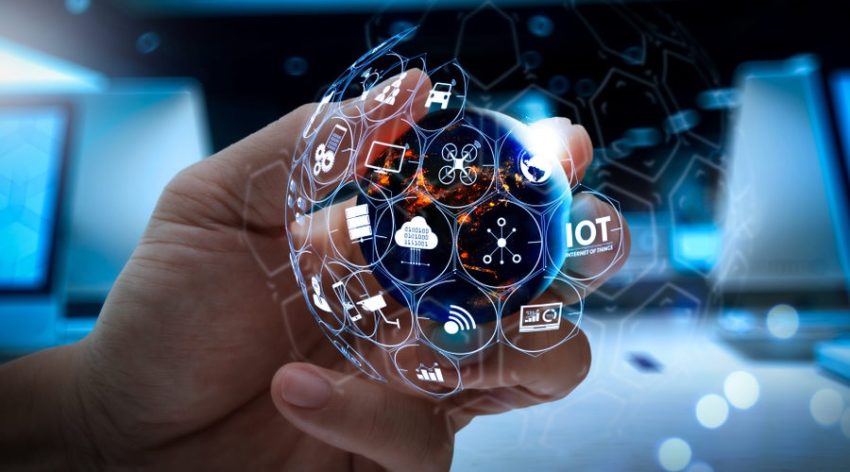Gen Z is the term used to describe those born between 1997-2012. They are the first generation of true digital natives. They have grown in a technologically-driven world. Gen Z will have a profound impact on the future of technology as they enter the workforce. This article will examine how Gen Z technology is changing and what it means for consumers and businesses.
What is the technology usage of Gen Z compared to older generations?
It’s crucial to remember that Gen Zers still have a lot of potential as they grow and continue to learn. They can influence the future of technology positively and in an influential way. What is the most exciting thing about Gen Z? Gen Z’s comfort with technology and digital sophistication is increasing rapidly.
What is the impact of technology on Gen Z’s interaction with the world today?
Gen Z was raised in a world where they had 24/7 internet access, a large collection of connected devices and social media from the day they were born. They see the digital and physical worlds as an effortless blend of experiences. The world is interconnected and unique, with no boundaries. They seamlessly mix offline and online activities, whether it’s for communication, entertainment, or shopping.
Gen Z and Technology
Gen Z is also called the digital natives. They are a technology-savvy generation. Smartphones, social media and the internet have been a part of their daily lives since they were young. They have an unique view of technology and its place in society. Technology is more than a tool for Generation Z. It’s a way to live. It is used to learn, communicate, work and play. Gen Z is the driving force behind new technology and advancements of existing technologies. It is still early days for technology to have an impact on Generation Z or vice versa. Take a look at the way Gen Z shapes the future of technology.
1. Mobile Technology: The Rise of Mobile Technology
Gen Z is characterized by its dependence on mobile technology. A Pew Research Center study found that 95% have smartphones and that 45% claim to be online “almost always”. As a result, mobile-first technologies such as mobile gaming, mobile payment, and mobile messaging have become more popular. Gen Z and technology have become increasingly intertwined as a result. Generation Z prefers mobile devices. GlobalWebIndex found that 77% of Gen Z users spend at least 3 hours a day on their smartphones and 53% prefer to shop using mobile apps.
Related: Business Technology: What it is and why you need
2. Embracing Social Media
Social media has changed the relationship between gen Z and technology. This generation uses social media to share stories, communicate, and express their opinions. In order to reach out to consumers, more emphasis is being placed on visual storytelling and using social media influencers. According to Kantar, 81% of Gen Z consumers in the US use social media and 47% do so for product research.
Social media and Gen Z are shaping the future. They are very active on social media platforms such as Instagram, Snapchat and TikTok. They use these platforms to share their experiences and keep up with current events. The generation is constantly bringing about changes to pop culture.
3. Personalization is a Demand
Generation Z is accustomed to a world of personalization. Both Gen Z and technology are experiencing ups anddowns. Gen Z must be provided with individualized experiences by technology. A Salesforce survey found that 69% of Gen Z consumers were okay with businesses using personal information for customized offers and suggestions. From personalized Netflix recommendations to social media marketing targeted to specific interests, this generation expects the technology to adapt to its own needs and preferences. This demand for personalization is driving innovation in disciplines such as artificial intelligence, data analytics, and machine learning.
4. Sustainability and Social Responsibilities
Gen Z’s commitment to sustainability and social responsibility is well known. Sustainability and social impact are important to Gen Z. According to a Deloitte survey, 49% of Gen Z consumers prefer to buy goods and services that are environmentally or socially responsible. The Gen Z generation tends to be more supportive of businesses that place a high priority on sustainability and social justice. They also expect this from the technology they use. There is a rise in socially and environmentally conscious IT products.
5. The rise of the gig economy
The relationship between Gen Z and technology is at the heart of many of their working habits. This generation is more likely than others to embrace the gig economy, as they also prefer freelancing and remote employment. Websites like Upwork and TaskRabbit, which facilitate these types of employment agreements, have grown in popularity.
6. Impact on the Future of Work
Gen Z’s preference for flexible schedules and remote work is also changing the way we see the future of employment. Many businesses have implemented remote work policies, and are investing in collaboration technologies due to the impact technology has had on Generation Z. The gig economy also gives freelancers and entrepreneurs a new set of opportunities that could upend existing businesses.
7. The Implications of Education
Gen Z’s entry into the workforce will have an impact on education. This generation has grown up with technology, and now they want to use it in their education. Online learning platforms such as Coursera and Udemy are becoming more popular. Traditional classrooms now use educational technology from generation Z.
8. Cybersecurity: The Need for It
Cybersecurity has become a major problem, as technology is increasingly permeating every aspect of life. Gen Z are particularly vulnerable to cyber threats because they tend to share their personal information online. As a result, stronger cybersecurity procedures are required, including two-factor authentication, encryption and more.
9. The role of education
Gen Z also influences the direction technology takes in education. This generation, which has grown up with technology, expects that educational institutions will provide them with the digital resources and tools they need to succeed. This has led to an increased emphasis on online education, individualized instruction and generation Z’s technology use in the classroom.
10. Gaming Influence
Gaming is another industry in which Gen Z has had a significant impact on technology. Gen Z, the first generation that experienced gaming as an entertainment form, is leading innovation in virtual reality, augmented realities, and esports. Gaming is a communal activity, so there are many gaming groups, and people who use gaming platforms to promote social activism.
11. The need for privacy and security
Gen Z is becoming more adept at technology and more aware of privacy and security. This generation wants more control and transparency over their data, as well as stronger security measures against cyber-attacks. Two-factor authentication has become increasingly popular, as have encrypted messaging apps.
12. Accessibility is Important
Gen Z advocates for accessibility as a key feature of technology. Gen Z believes that technology should be accessible to everyone regardless of their physical abilities. Due to this, the use of assistive generation Z technology, such as screen readers and speech recognition software, has increased, and accessibility-conscious product design is now more important than ever.
13. Future Healthcare
Gen Z’s dependency on technology is also affecting the healthcare sector. The demand for individualized and accessible healthcare is driving this generation to innovate in areas like wearable medical devices and telemedicine. Gen Z is also more interested in digital services and tools that can help with emotional wellbeing.
Using multiple devices simultaneously
Generation z has a lot of uses for their gadgets. They use them for chatting, video conferencing, studying, playing games and creating creative stuff. The generation z is not strict in having only one gadget. They are happy to get new ones even if their old ones still work. According to a study, 66% of Gen Z users use multiple gadgets at the same time. They have so many gadgets that it encourages manufacturers to create more advanced and fancy ones.
15. There is less tolerance for technical errors
Remember the days of slow internet, fax machines and phones that were only used for calls. Gen Z might not find that disappointing. Gen Z has grown up using smart gadgets, and they have no clue what older technology is. Gen Z is impatient when it comes to tech issues. Gen Zers will not hesitate to complain if something is too slow or glitchy. It’s surprising to learn that 62% will abandon an app or website for being too slow. Tech companies are now working harder to make things faster and easier.
Gen Z will play a major role in shaping the technological future. The world of technology is changing rapidly. Gen Z is changing the world for the better, and both this generation and industry are working to make this happen. Gen Z is pushing for greater innovation, accessibility and social responsibility through technology, thanks to their unique viewpoints, abilities and expectations.
Read more:

